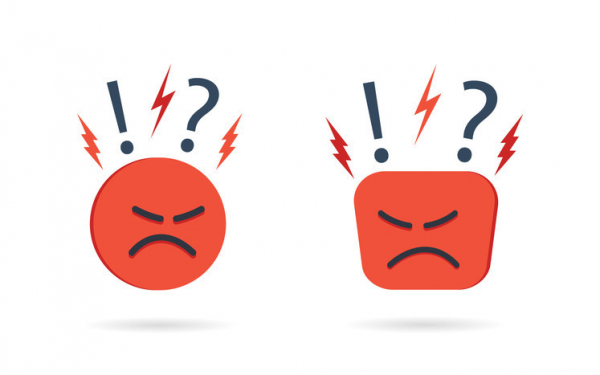
The COVID-19 pandemic has been hard on so many people in so many ways. For babies born during this pandemic, a study published in JAMA Pediatrics suggests that the damage has potential to be lifelong.
The first three years of life are crucial for brain development. And it’s not just the health of babies that matters, but the interactions between babies and their caregivers. Babies need to be touched, held, spoken to, smiled at, played with. As they receive and respond to those interactions, in a “serve and return” kind of way, neural connections are built in the brain. When babies don’t have those interactions, or enough of them, their brains don’t develop as they should — and can even be literally smaller.
When you are a stressed or depressed parent or caregiver, it can be hard to find the time, let alone the energy or interest, to talk to and play with your infant. There are multiple studies showing that maternal depression, poverty, and other family stressors can change the development of a child forever.
How was the study done?
In this study, part of an ongoing study of mothers and babies, researchers from Columbia University looked at the development of three groups of 6-month-old babies. Two of the groups were born during the COVID-19 pandemic; the mothers of one group had COVID-19, while the mothers of the other did not. The third group was a historical cohort (a group of babies who were born before the pandemic).
Mothers participating in the study used an Ages and Stages Questionnaire (ASQ-3) to record their babies’ development. The researchers noted no difference in the development of the two groups of babies born during the pandemic, suggesting that prenatal exposure to COVID-19 doesn’t affect development, which is great news. But the babies born during the pandemic scored lower in gross motor, fine motor, and social-emotional development than the babies born before the pandemic. Examples of developmental tasks for infants this age are rolling from back to tummy (gross motor), reaching for or grasping a toy with both hands (fine motor), and acting differently to strangers than to parents or familiar people (social-emotional development).
What does it suggest about infant development during the pandemic?
It’s just one study, and we need to do more research to better understand this, but the findings are not really surprising given what we know about infant development. The COVID-19 pandemic has caused a lot of stress — emotional, financial, and otherwise — for so many families. It has also markedly affected the number and kind of interactions we have with other people. Babies are on average interacting with fewer people (and seeing fewer faces because of masking) than they did before the pandemic.
Even though we need to do more research, this study should serve as an alarm bell for us as a society. The children of this pandemic may carry some scars forever if we don’t act now. We’ve been seeing the emotional and educational effects on children; we need to be aware of the developmental effects on babies, too. All of these could permanently change their lives.
What can we do to address these challenges?
We need to find ways to support families with young children, financially and emotionally. We need to be energetic and creative, and work every angle we can. While our government should play a role, communities and individuals can help too.
We need to refer families to and fund early intervention programs around the country that support the development of children from birth to 3 years of age. Because of the pandemic, many of these programs have moved to virtual visits, which can make them less effective. So we need to get creative here, too. We can’t just wait for the pandemic to be over.
And parents and caregivers of infants and toddlers need to know about this research — and ask for help. It’s understandable and natural for parents to think that babies are too small and unaware to be affected by the pandemic. But they are affected, in ways that could be long-lasting. Talk to your doctor about what you can do to help yourself, your family, and your baby’s future.
Follow me on Twitter @drClaire


